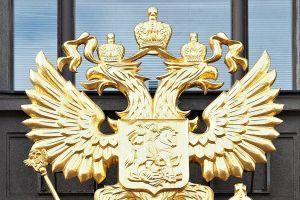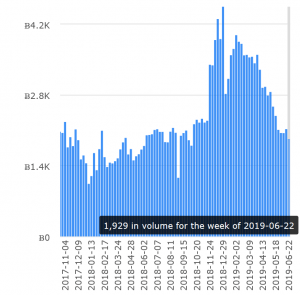Russian Parliament Comes to ‘Cryptocurrency Crossroads’
The man charged with leading Russia’s charge for crypto-regulations says a package of three bills will soon be ready for a second reading – and has echoed recent comments made by Deputy Finance Minister Alexei Moiseev, claiming crypto trading could be legalized in the country.

Anatoly Aksakov, the head of the Duma’s Financial Market Committee, told the parliament’s media arm that the bills could be passed before the end of July, and are likely to be prioritized when the Duma’s summer session opens on July 25.
Moiseev last week said that Russian policymakers are now faced with a binary choice – ban cryptocurrency trading altogether or legalize the sale and purchase of tokens.
And Aksakov’s most recent comments seem to back up Moiseev’s claims, with the former stating, in the words of the Russian Parliamentary Gazette that “parliamentarians are now at a crossroads.” Aksakov stated that the Duma could either refuse to recognize Bitcoin and other cryptocurrencies or “legalize [cryptocurrencies] and hand over the keys to the Central Bank.”
The statement may give optimistic Russian crypto-enthusiasts reasons for cheer, but the glass may yet turn out to be half empty. Aksakov also hinted that the notoriously crypto-skeptical Central Bank still has major reservations about formally allowing the use of cryptocurrencies in the country. The committee chief confirmed that the Central Bank is still concerned that cryptocurrencies can be used to finance crime and terrorist activities – and says the organization has further reservations.
The same media outlet quoted Aksakov as stating,
“Thus far, the Central Bank does not want to legalize [cryptocurrencies], because they can pose a threat to the financial system.”
Weekly LocalBitcoins, a peer-to-peer bitcoin marketplace, volume (in bitcoin) in Russia:

Meanwhile, in Abkhazia, a Russia-backed, partially recognized republic on the eastern coast of the Black Sea, the government could overturn a temporary cryptocurrency mining ban it imposed at the end of last year.
_______________________________
_______________________________
In December 2018, Abkhazian power providers claimed that their transmission lines and substations were “loaded to capacity” as cryptocurrency miners in the state continued to increase the size of their farms.
But per media outlet Sputnik Abkhazia, the region’s cabinet is now set to approve a resolution that could soon allow miners to re-start their rigs – provided they obtain licenses and pay tax on their earnings.
The same media outlet quotes an economy ministry spokesperson as stating: “Would-be miners will need to register as a legal company or an individual businessperson, make themselves known to the tax authorities and obtain a mining license.”




